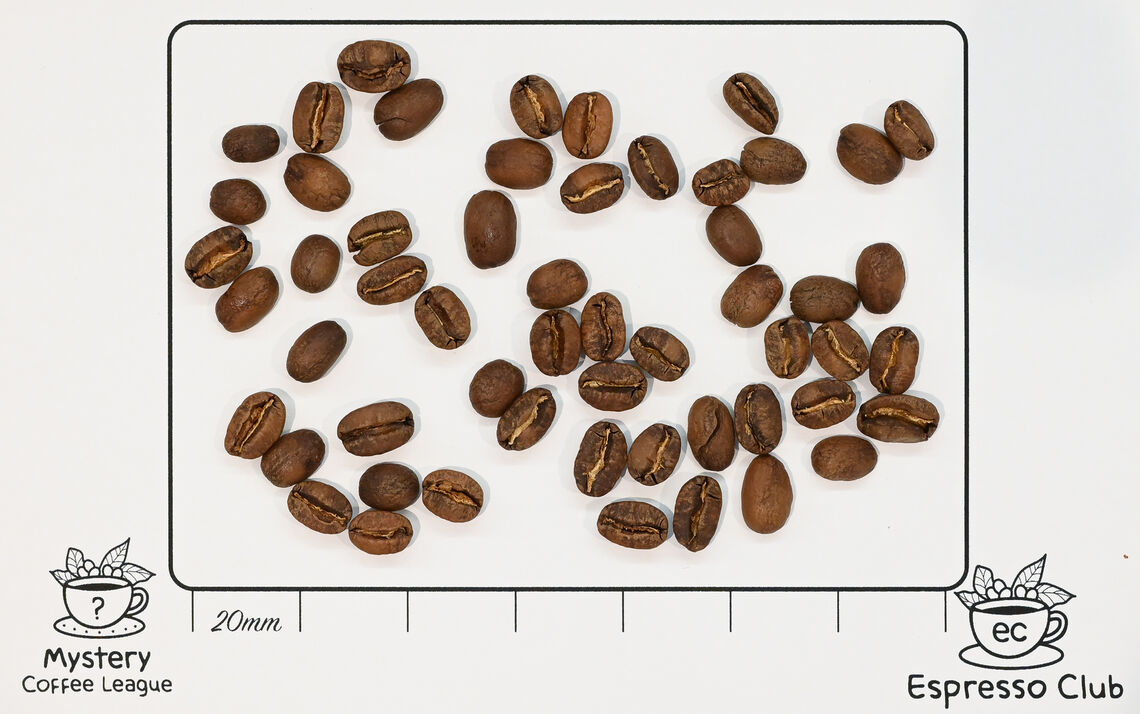AMOC - Netherlands 🇳🇱
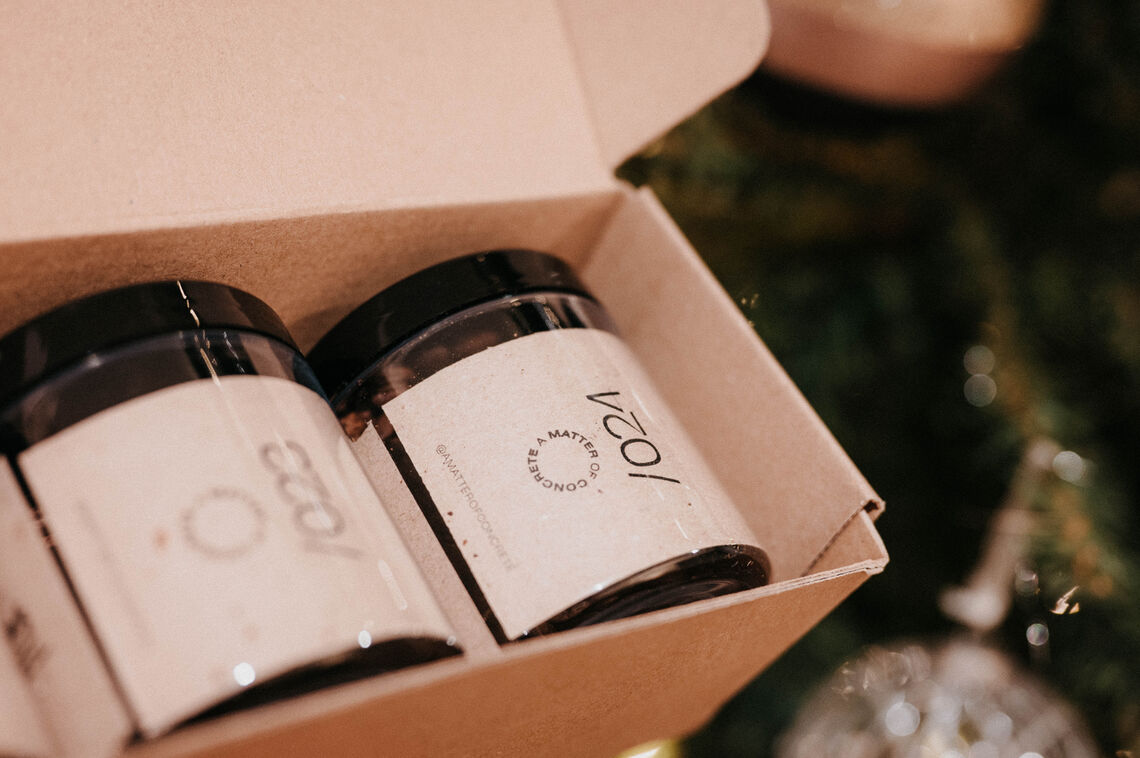
Mystery Coffee Advent Calendar

Week 1 - 🇨🇴 Colombia El Vergel Estate
Variety: Java
Processing: Anaerobic Natural
Altitude: +1500 m.a.s.l.
Tasting notes: raspberry pie (mapped to raspberry), canned strawberry (mapped to strawberry), cardamom (brown spice, mapped to nutmeg)
Harvest: 2022
Comment from Rob:
This exceptional Java is produced by Elias and Shady Bayter at their farm, El Vergel. Java is a very rare variety in Colombia, and it is part of a micro-lot on the estate that has been one of the most exotic, including some completely unique profiles. This coffee is processed using an extended cooled-down-anaerobic fermentation, which uses water in an innovative way to stabilize the temperature during fermentation. This makes for a cup that is subtle, juicy and complex, but also quite clean, without overpowering anaerobic fruit juice qualities.
The Story Behind:
This coffee is produced in the El Vergel farm in Fresno, Tolima, by the brothers Shady & Elias Bayter, who have been involved in farming from childhood, following the steps of their parents, who started as avocado growers.
The experience of growing up in the countryside created a strong bond between the brothers, farming and the region where they grew up. In 2012, they ventured into the world of coffee and fell in love with it. Immense dreams around coffee were born. Two years later, they discovered the specialty coffee movement and that's when they found the direction they wanted for El Vergel and for themselves to pursue.
In 2016, after several years of researching coffee varieties, appropriate climates and soils, the Bayter brothers kickstarted a varietal project at Finca El Vergel. The farm has a special microclimate thanks to the proximity to the snow-capped volcano Nevado del Ruiz, on whose slopes El Vergel is located.
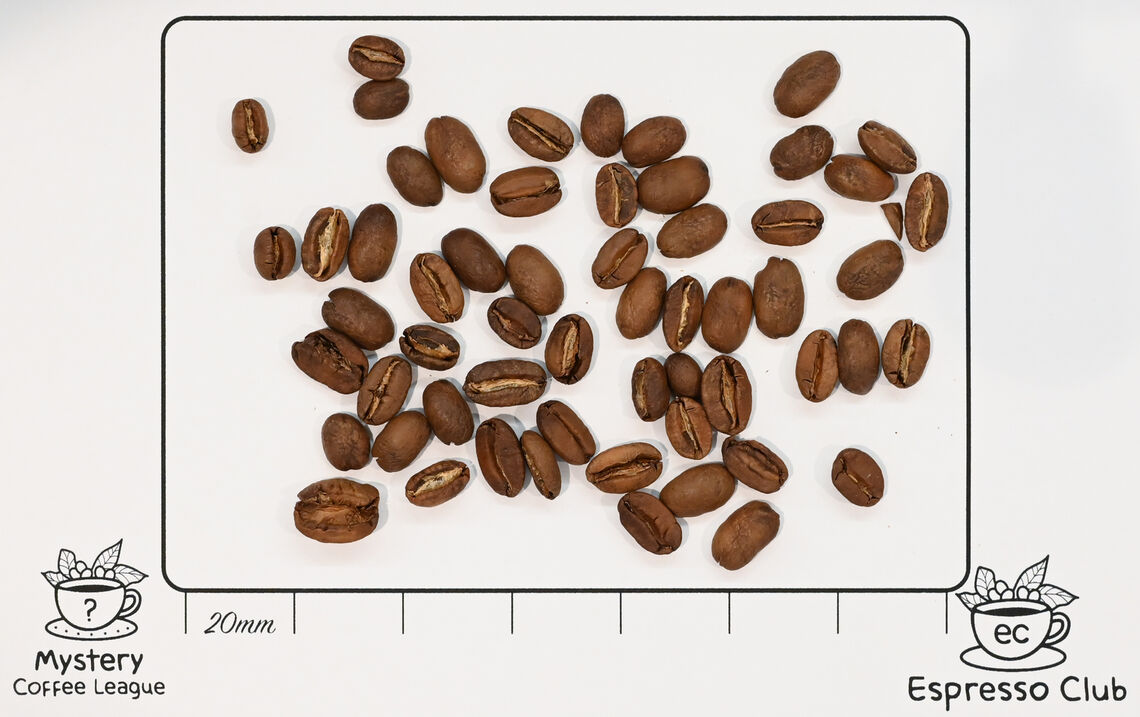

Week 2 - 🇬🇹 Guatemala San Antonio Huista
Variety: Field blend (Caturra, Bourbon, Pache, Catuaí)
Processing: Washed
Altitude: 1550-1735 m.a.s.l.
Tasting notes: almond, orange, milk chocolate (mapped to chocolate)
Harvest: 2022
Comment from Rob:
We always do cuppings blind. When we were doing a random selection of different suppliers in a blind cupping to select new coffees we kept going back to one cup. Not because it was so expressive, funky, unique, but captivating. It’s a cup that is simply delicious and you don’t want just one cup of. It’s a classic profiled coffee with an aroma that reminds us of biscuits and a subtle sweetness that is slightly citric and malic. Overall: a classic cup that you’d want to drink more than one cup of.
The Story Behind:
Andres Godolfredo Cano is a second generation coffee grower who dreamed of carrying on this work even as a youth. In order to buy his farm he worked for years, from 6 AM to 6 PM each day, carefully saving money to invest in land. Coffee farming is his passion and he feels a sense of pride when investing in healthy and productive coffee plants. Not only does he love coffee itself, he feels a strong commitment to the natural environment of Huehuetenango that provides the livelihood for coffee farmers. He strives to produce coffee as efficiently as possible in order to conserve the area’s resources. His excitement and commitment to his values is truly contagious, and we are happy to be working with him this year!
“When I was young I worked very hard with a thought that one day I’d like to be a coffee producer. Now I have reached this dream and I am still very motivated to work on my farm from 6 am to 6 pm. The coffee is the passion of my life and I do not mind investing in order to see healthy plants and trees. I want to keep on working with coffee while I can and inspire the other generations to do so as well”, tells Andres.
Godolfredo and his wife are involved in each step of the processing of this lovely coffee, along with one other worker. The coffee is picked on their farm, which is about 3 hours from their home. Because of this, they have situated the depulper near the coffee trees on the farm. After depulping, the depulped cherries are moved in clean sacks on horseback home to the fermentation tank. The coffee is placed in the tank with a small amount of water, just enough to submerge the pile. It ferments there for about 24 hours and then is carefully washed to remove the remaining mucilage. After washing, the coffee is placed on the patio where it dries for 5 days, roughly 7 hours per day. The family moves the coffee hourly to ensure thorough and even drying. Once the parchment coffee is dry, it is stored in clean sacks until they are ready to deliver it to our warehouse. “
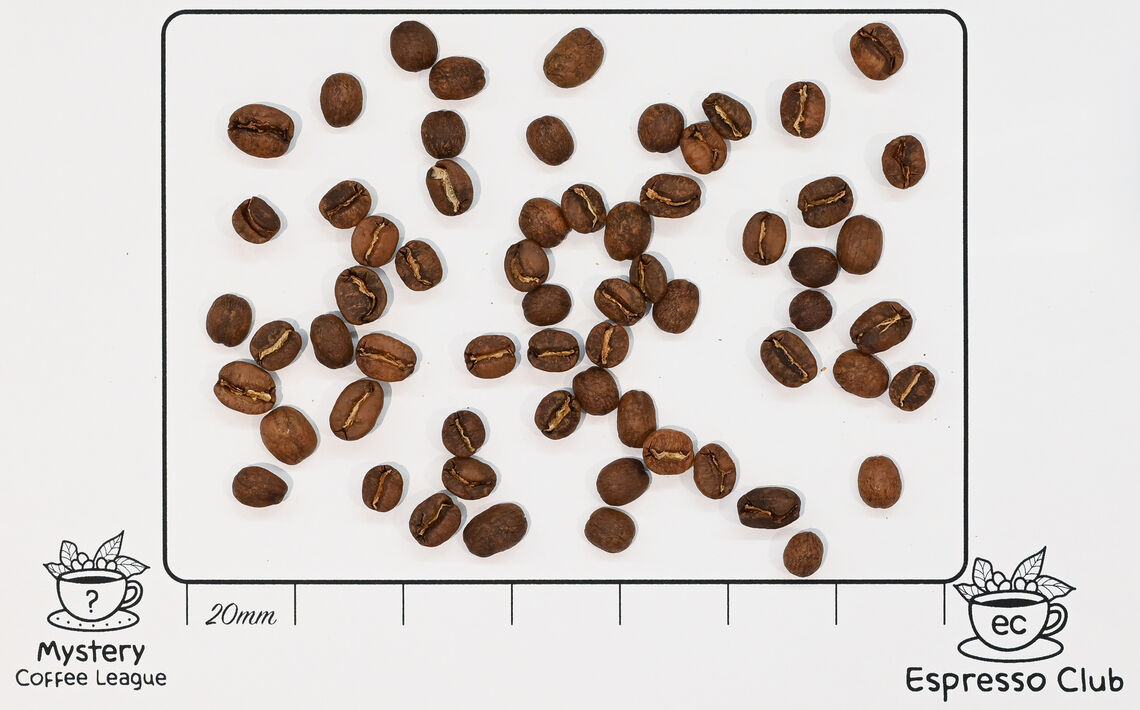

Week 3 - 🇨🇷 Costa Rica Aquiares Estate
Variety: F1 Centroamericano
Processing: Churro
Altitude: 1100-1300 m.a.s.l.
Tasting notes: pineapple, apple juice, mulled wine & limoncello (mapped to winey)
Harvest: 2022
Comment from Rob:
We tried this coffee on a cupping table at WOC Milan and immediately wanted it. It had the right amount of funk, crazy juicy but not overpowering. The aroma was scaring, but the flavours intriguing. It’s a hate-it-or-love-it kind of coffee, but we love it. There were only 3 bags available of this nanolot, and the guy in front of us during the cupping actually also wanted to buy it. He bought one bag, so 2 were left. Sold.
After a couple of minutes a Costa Rican guy tapped me on the shoulder and said: Hey Rob! I heard you bought ‘El Churro’! Amazing. The friendliest guy in the room was the producer of this coffee: Diego Robelo of Aquiares Estate.
Fun fact: this coffee is called “churro” because they roll the coffee cherries in black plastic to ferment inside their solar dryer. Churro is not just the food, but also means ’spliff' in Costa Rican Spanish, because, let’s be honest, that’s what it looks like when it’s rolled. Side note: Diego himself is not a big fan of this name, but his pickers came up with it.
The variety used is their Centroamericano, which is an F1 hybrid varietal, grown between 1100-1300 MASL.
Churro is a Thermic Fermentation, that’s intended to bring out subtle alcoholic notes of coffee. The type of microbes fermenting each batch remain constant, since only some can withstand the temperature of 40C to 45C. Call it anaerobic natural, but not in your classic tank.
To us, this incredible coffee from the first cupping reminded us of unfiltered fresh apple juice. With our own roasting profile we tried to lower the booziness of this coffee a tad bit. In the final cup you can find flavours of pineapple, apple juice, mulled wine & limoncello. Expect boozy and winey notes, but not those overripe-fruit tones. We think Diego knows exactly when to stop fermenting and created a funky but still balanced coffee.
The Story Behind:
The farm is nestled between the Aquiares and Turrialba Rivers indeed “Aquiares” means “land between rivers” in Costa Rica’s Huetar indigenous language. The region where the farm is located used to be the center for this pre-Columbian civilization and occasionally old artifacts are found among the coffee trees. In fact Guayabo National Monument Costa Rica´s most important indigenous settlement is just 5 km (3.1 miles) away. The land of Aquiares is blessed with infinite sources of clean water and even provides drinking water to three communities down stream.
Aquiares one of Costa Rica’s largest and most historic coffee farms sits high on the fertile slopes of Turrialba Volcano. Producing coffee continuously for over a century the farm has developed an enduring model for growing high-quality Arabica coffee protecting a stunning natural setting and supporting a thriving local community of 1800 people. Established by British farmers in 1890 Aquiares was one of the first estates to produce and export Costa Rican coffee. Since 1971 three owner families have worked together with the farm´s staff and community to implement a modern model of sustainable agriculture.
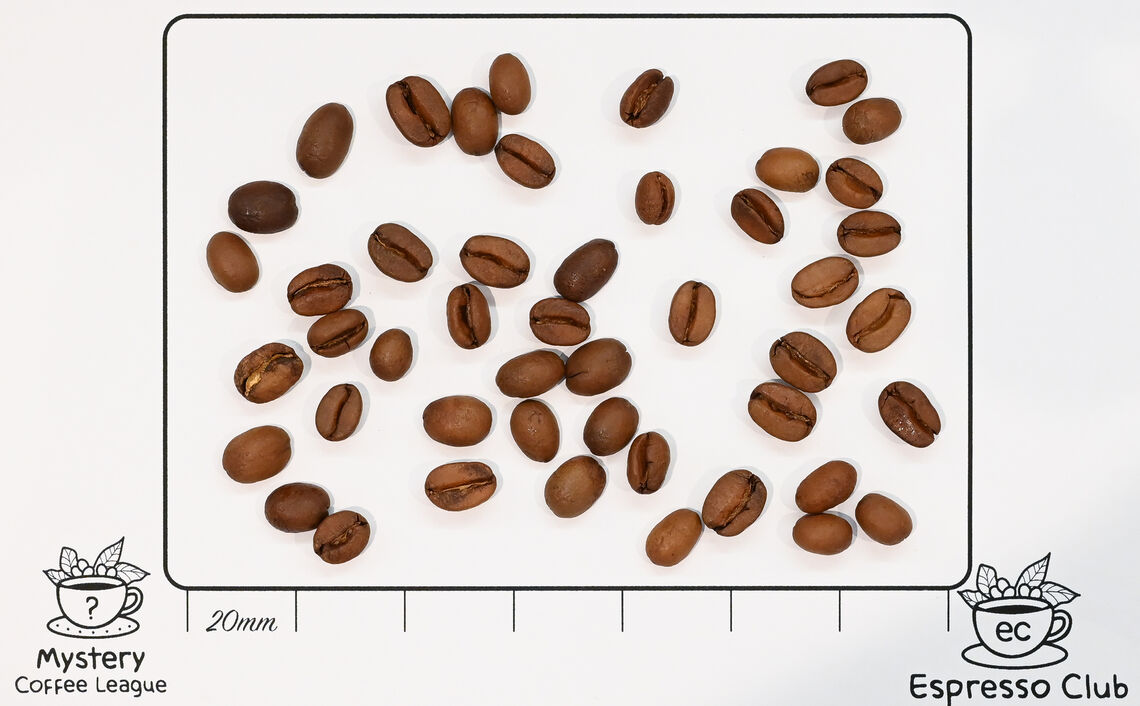

🇨🇴 Colombia Bruselas Javier Alvear
Variety: Aji (mapped to Other)
Processing: Washed
Altitude: 1500+
Tasting notes: rosehip (mapped to rose), nectarine (mapped to peach), cinnamon
Harvest: 2022
Comment from Rob:
One of the rarest coffee kinds to recently become accessible is the subject one of our first 2023 releases, Ají.
For some this is also known as the Bourbon Ají, though it has been discovered to not be a Bourbon variety (hence mapping to Other).
The Ají variety is genetically distinct from ancestor seeds carried to the Americas centuries ago and specialists are still unaware of its origin, it is a relatively recent discovery in the world of coffee. It is thought that it is a newly discovered Ethiopian Landrace not found in many accessions.
The variety Ají is distinguished by the variety's distinctively mildly spicy pepper character, which is followed as it cools by red fruit flavors and mild floral undertones, creating a unique and distinctive cup. We've found these spicy notes to be closer to rosehip, VOC spices or even mild sechuan.
This is a unique coffee, but we've found it a tricky one to find the sweet spot. An aroma that is toffee like and that of freshly baked pastries. A true spectrum of fruit notes from orange to cranberry to cherry.
It has amazing complexity, where, if you find the sweet spot, it has a very clear nectarine note. It has a tingling sensation in the aftertaste and flavour that also rosehip has and quite pronounced spice notes that are subtle and that of cinnamon.
The cherries were processed by 24 hours of fermentation in Grain Pro bags before pulping. After this the pulped beans are fermented for 70 hours in tanks. After this the coffee was dried in their dryer for 12 hours after washing and further dried on raised beds in their greenhouse.
The Story Behind:
The producer, Javier, has been involved with the coffee world for his entire life. His parents and grandparents have practically always been coffee pickers and have always lived in Bruselas, Huila. Being a picker is a very taxing job; Javier soon got bored of working that way and got more thrilled about the idea of being a producer himself. He learned how grow coffee trees and to process coffee by traveling to different regions in Colombia to learn. After many years of labor, he finally managed to save up enough money to go back to the farm where he was raised and plant his own coffee plants.
He convinced his dad and brother to be partners and they started planting robusta coffees. Over time they realised that the domestic robusta market is a very unfair market for the producer and so they began to learn more about specialty coffee. That's how they changed all their stock to Pink Bourbon. It was a variety that, due to the elevation of the farm, 1800 meters above sea level, had a great harvest. After about 3 years of producing Pink Bourbon, their neighbour José Salazar told them that he had found a new variety, that coffee left a mild spicy sensation in the mouth called “Bourbon Ají”; Javier decided to buy the seeds and started planting his very own Aji.
Sidenote: In 2020, José entered one of his coffees in Colombia’s Cup of Excellence competition for the first time, and was awarded 17th place for a selection of his Pink Bourbon. In 2021, he decided to enter a different, somewhat mysterious variety that he had come to refer to as “Bourbon Ají'' after noticing that the coffee cherries harvested from these particular trees had an aroma reminiscent of hot chili peppers (“ají” means “chili” in Spanish).
However, as mentioned before genetic testing indicated that this variety is not a bourbon at all, but rather, a little known Ethiopian landrace, José Salazar’s Cup of Excellence submission certainly wowed the competition judges and his coffee was ultimately awarded 6th place in the 2021 competition with a cup score of 89.32.
